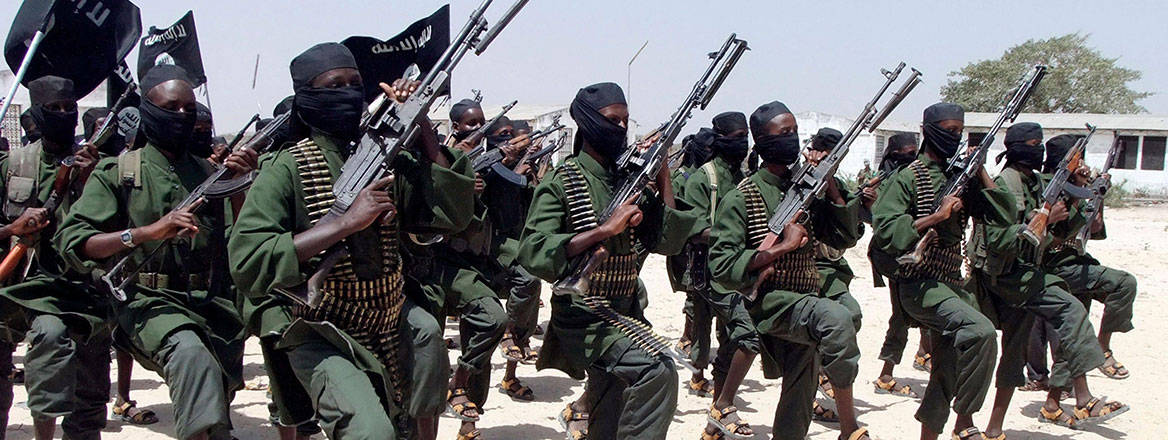RUSI
|
|
Out of Africa: Financial Networks of Islamic State 2.0
The killing of a prominent Islamic State financier in Somalia sheds light on the group’s transnational financial networks and shifting centre of gravity.

On 25 January 2023, US special forces killed well-known extremist Bilal Al-Sudani, together with nine associates, in northern Somalia. This has drawn media and expert attention to the role Somalia plays as a piece in the international jihadi jigsaw. Somalia is important not just because of the presence of Al-Shabaab but also because of the globally networked structure that Islamic State (IS) has created for finance and other purposes.
These networks have been the subject of increasingly detailed reporting by the UN’s Analytical Support and Sanctions Monitoring Team in recent years. They have grown in importance since the final defeat of the IS ‘caliphate’ in Iraq in 2017 and then in Syria in 2019. IS knew that it would need a structure outside its core area that could organise and support its remote provinces, and it thus decided to form a regional hub-and-spoke system.
In July 2022, the Monitoring Team revealed new information about IS’s Al-Karrar Office (AKO), which is based in Puntland, Somalia, and functions as the coordinating hub of the regional network that includes IS’s affiliates in Mozambique and the Democratic Republic of Congo (DRC). The key revelation was that AKO had a financial remit that extended beyond its regional network, both within Africa and further afield. In particular, AKO was involved in supplying funding to IS-Khorasan in Afghanistan.
Al-Sudani had been on the US radar for more than a decade as an Al-Shabaab financier, but the operation to capture or kill him was rendered urgent by the fact that he had left Al-Shabaab, joined IS and become head of AKO. In explaining the importance of the operation, the US drew attention to Al-Sudani’s role in financing IS operations in Afghanistan.
Many issues arise from this incident, including vital retrospective questions as to how AKO was operating: where was it sending money and how? Was it generating revenue or simply acting as a relay point? What was the source of the funding? The Monitoring Team returned to the subject in its latest report, written in December 2022 before the US operation against Al-Sudani, which mentions revenue-generation in and around Somalia, giving approximate figures for revenue ($100,000 per month) and disbursements to IS-Khorasan ($25,000 per month in cryptocurrency). But the insights are tentative and fragmentary, so more detailed US briefing would be welcome. One important unanswered question about African sources of revenue for IS is whether it has significant private donors on the continent, and where they are based.
Kinetic operations against terrorists such as Al-Sudani are controversial as a tool of counterterrorism, with critics arguing that those killed provide inspiration as martyrs and are easily replaced with equally capable successors
Even more important will be to understand the impact of Al-Sudani’s removal on IS finance and operations in the future. The currently available picture of IS’s global structure is also patchy, with disagreements between UN member states about how fully the group has been able to flesh out its blueprint. But the stakes are high. IS-inspired murder and mayhem in countries as diverse as Afghanistan, Mozambique, DRC, Nigeria and Mali can escalate or be brought under control depending upon how effectively IS supports such activity, and conversely how robustly member states respond.
Kinetic operations against terrorists such as Al-Sudani are controversial as a tool of counterterrorism, with critics arguing that those killed provide inspiration as martyrs and are easily replaced with equally capable successors. A game of ‘whack-a-mole’, unsupported by more constructive counterterrorism, counter-extremism and development strategies, is unlikely to deliver victory to the forces of law and order. That said, the killing of Al-Qa’ida’s master bomb-maker Ibrahim Al-Asiri in 2017 did effectively eliminate the threat from inside Yemen that had so preoccupied the international community until then. It remains to be seen whether Al-Sudani and the comrades killed with him had unique skills or connections that IS will struggle to replace. If so, we may see AKO reduce in importance, with IS-Khorasan and other affiliates finding it harder to fund themselves.
Studies of IS networks suggest that they have been designed in such a way as to evolve and adapt according to the opportunities available. If one IS-affiliated entity (or individual) shows an aptitude for supplying an essential function, it will be encouraged and reinforced, while others (like the IS hubs in Libya and Yemen) will be allowed to wither. This may suggest that Al-Sudani was exceptionally capable, and that his removal will affect IS’s future funding model. IS already encourages its franchises to become self-sufficient, financially and otherwise. It may be that there is no ready fallback option to provide financial support to them from outside.
And this opens up one final, important point for debate and monitoring. With reduced financial dependencies and minimal command and control, what is in it for the affiliates? They mount operations that fuel the IS propaganda machine and they gain respect and recognition for their operational prowess. But with increased autonomy, we should expect to see a loosening of ties of obligation. Local considerations may come to trump ideological cohesion, as has clearly happened in the case of Hayat Tahrir al-Sham’s Syrian agenda and its refusal to take instructions from Al-Qa’ida’s global leadership. We could be entering an era where IS and Al-Qa’ida are not much more than labels of convenience – evocative brand names that local extremists adhere to while deciding their strategies and tactics for themselves.
The views expressed in this Commentary are the author’s, and do not represent those of RUSI or any other institution.
Have an idea for a Commentary you’d like to write for us? Send a short pitch to commentaries@rusi.org and we’ll get back to you if it fits into our research interests. Full guidelines for contributors can be found here.
Original article link: https://rusi.org/explore-our-research/publications/commentary/out-africa-financial-networks-islamic-state-20
.gif)

